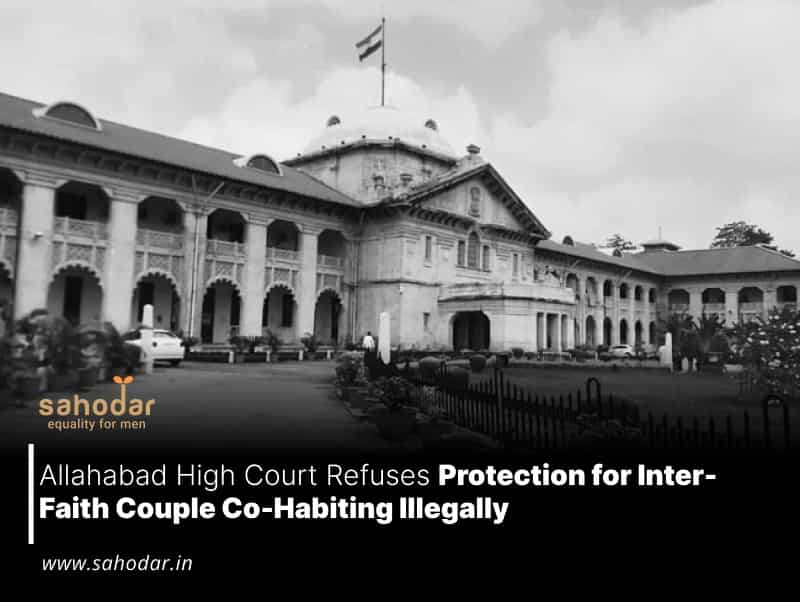The Allahabad High Court declined to afford legal protection to the cohabitation arrangement between a Hindu male petitioner and a Muslim female petitioner, deeming the relationship adulterous in light of the latter’s subsisting legal marriage and the absence of documented evidence substantiating divorce proceedings.
In the matter at hand, a writ petition was instituted under Article 226 of the Constitution, seeking judicial intervention to preserve the sanctity of the petitioners’ matrimonial bond from potential disruption.
The petitioners, comprising the Hindu male petitioner (petitioner 2) and the Muslim female petitioner (petitioner 1), contended that their cohabitation stemmed from the purportedly abusive conduct of petitioner 1’s former spouse (respondent 5).
A Bench of Justice Renu Agarwal held, “The court could not protect such type of relationship which is not supported by law. If the court indulge in such type of cases and grant protection to illegal relationship, then it will create chaos in the society.”
Advocate Lavkush Kumar Bhatt appeared for the Petitioners.
The Court found that petitioner 1 was still legally married to respondent 5 as there was no evidence of divorce. The Court added, “The petitioner no.1 along with her 5 years old female child has left the house of her husband/respondent no.5 without any reasonable cause, hence such type of illegal relationship need not be protected by court. Therefore, the petitioners are not entitled to get any type of protection from this Court”
As a result, the Court ruled that the petitioners’ relationship was adulterous and therefore not entitled to legal protection.
Furthermore, the Court dismissed the petition, imposing a fine of Rs. 2000 on the petitioners and instructing them to remit the amount to the mediation center within a period of 15 days.

